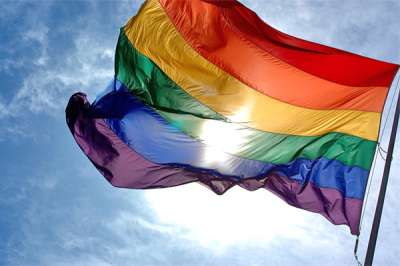Appeals court upholds Washington's conversion therapy ban, rules against Christian therapist

A federal appeals court unanimously upheld a Washington state law prohibiting LGBT conversion therapy on minors, rejecting a Christian therapist's claims that the ban violated his free speech rights to counsel patients with unwanted same-sex attraction.
A three-judge panel of the 9th U.S. Circuit Court of Appeals ruled Tuesday that Washington's conversion therapy ban for LGBT minors is constitutional.
Circuit Judge Ronald Gould authored the panel opinion, stating that the law "does not violate the First or Fourteenth Amendments" because the state has the power to regulate medical practices.
"States do not lose the power to regulate the safety of medical treatments performed under the authority of a state license merely because those treatments are implemented through speech rather than through scalpel," wrote Gould, an appointee of former President Bill Clinton.
Gould wrote that state law "does not prevent health care providers from communicating with the public about conversion therapy; expressing their personal views to patients (including minors) about conversion therapy, sexual orientation, or gender identity; practicing conversion therapy on patients over 18 years old; or referring minors seeking conversion therapy to counselors practicing 'under the auspices of a religious organization' or health providers in other states."
Striking down Washington's law on First Amendment grounds "would endanger other regulations on the practice of medicine where speech is part of the treatment," Gould added.
"Washington restricted licensed providers from performing conversion therapy on minors because of the demonstrated harm that results from these practices, and not to target the religious exercise of health care providers," he continued.
"Washington's law prohibits therapists from practicing conversion therapy on minors. It makes no reference to religion, except to clarify that the law does not apply to practice by religious counselors."
Roger Brooks, an attorney with Alliance Defending Freedom who represents Tingley, told Reuters that "the government has no business censoring conversations between clients and counselors." They plan to file an appeal.
Although Senate Bill 5722 states that the ban does not apply to "religious practices or counseling under the auspices of a religious denomination, church, or organization," ADF attorneys argued that it is a "sham exemption" because it doesn't apply to practicing Christian counselors who "help fellow Christians who seek his assistance to live consistently with the teachings of their shared faith."
Washington Attorney General Bob Ferguson responded to the ruling with a statement:
"Conversion therapy does not work, and can be particularly harmful to minors," he said.
In 2013, the 9th Circuit ruled in favor of a similar California law, a first-in-the-nation ban on sexual orientation change therapy for minors.
Sometimes known as "reparative therapy," the court defined conversion therapy as an attempt to "change an individual's sexual orientation from gay to heterosexual or to change an individual's gender identity from transgender to cisgender."
Such counseling has been largely rejected by mainstream psychiatric organizations in the United States, with over 20 states and the District of Columbia banning the practice on minors.
However, some Christian counselors say their practices are often misconstrued and the term "conversion therapy" maligns their efforts to help people facing unwanted same-sex attraction.
In May of last year, a licensed marriage and family therapist named Brian Tingley filed suit against Washington's ban, which had been signed into law by Gov. Jay Inslee in 2018.
"Washington State seeks to insert itself into the privacy of Plaintiff's counseling room and censor his discussion and exploration of certain ideas with his young clients," claimed the suit.
"The Law threatens severe sanctions—including substantial fines, suspension from practice, and even loss of his license and livelihood—if Plaintiff speaks ideas, and assists his clients towards goals, of which the State disapproves."
U.S. District Judge Robert J. Bryan rejected the legal challenge in September 2021, arguing that the ban did not "restrain the dissemination of information" but "prohibits a licensed therapist from engaging in a specific type of conduct."
"Plaintiff is free to express and exercise his religious beliefs; he is merely prohibited from engaging in a specific type of conduct while acting as a counselor," Bryan wrote last year.






















